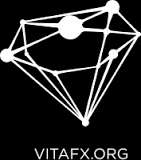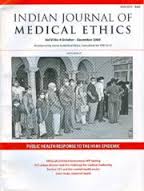 Health and Human Services Secretary Tom Price, M.D. today announced the selection of five entrepreneurial projects for investment by the Secretary’s Ventures Fund (HHS Ventures). The projects were chosen from across HHS and are part of the latest round of funding and support designed to advance the Department’s innovation agenda... HHS Ventures is a highly competitive effort that provides growth-stage funding and support to HHS employees with proven ideas for how to dramatically improve their office, agency, or the Department’s ability to carry out its mission...
Health and Human Services Secretary Tom Price, M.D. today announced the selection of five entrepreneurial projects for investment by the Secretary’s Ventures Fund (HHS Ventures). The projects were chosen from across HHS and are part of the latest round of funding and support designed to advance the Department’s innovation agenda... HHS Ventures is a highly competitive effort that provides growth-stage funding and support to HHS employees with proven ideas for how to dramatically improve their office, agency, or the Department’s ability to carry out its mission...data sharing
See the following -
The Secretary’s Ventures Fund Announces 2017 Projects
 Health and Human Services Secretary Tom Price, M.D. today announced the selection of five entrepreneurial projects for investment by the Secretary’s Ventures Fund (HHS Ventures). The projects were chosen from across HHS and are part of the latest round of funding and support designed to advance the Department’s innovation agenda... HHS Ventures is a highly competitive effort that provides growth-stage funding and support to HHS employees with proven ideas for how to dramatically improve their office, agency, or the Department’s ability to carry out its mission...
Health and Human Services Secretary Tom Price, M.D. today announced the selection of five entrepreneurial projects for investment by the Secretary’s Ventures Fund (HHS Ventures). The projects were chosen from across HHS and are part of the latest round of funding and support designed to advance the Department’s innovation agenda... HHS Ventures is a highly competitive effort that provides growth-stage funding and support to HHS employees with proven ideas for how to dramatically improve their office, agency, or the Department’s ability to carry out its mission...- Login to post comments
The Technology Is in Place – It’s People and Practical Implementation That Will Enable Change Outlined by Dame Fiona Caldicott and CQC
 In response to the recommendations by the CQC and Dame Fiona Caldicott, Jacinta Ni Suaird, Product Director at IMS MAXIMS said: “The CQC and Dame Fiona Caldicott recommendations provide welcomed guidance in the use and safeguarding of patient’s data, which can lay the foundations for restoring public trust in this area. The recommendations call for health and care organisations to show greater leadership around data security, with a strong emphasis on providers...
In response to the recommendations by the CQC and Dame Fiona Caldicott, Jacinta Ni Suaird, Product Director at IMS MAXIMS said: “The CQC and Dame Fiona Caldicott recommendations provide welcomed guidance in the use and safeguarding of patient’s data, which can lay the foundations for restoring public trust in this area. The recommendations call for health and care organisations to show greater leadership around data security, with a strong emphasis on providers...
- Login to post comments
The tranSMART Foundation And BT Collaborate To Deliver Fast, Flexible Cloud-Based Applications To Life Science Organizations
BT joins the tranSMART Foundation to extend support to the developer community; companies to continue work on the next release of Translational Medicine Platform.
- Login to post comments
The White House Is Pushing Precision Medicine, but It Won’t Happen for Years
For starters, it’s too expensive and the science isn’t advanced enough. With the right technologies to collect and make sense of biomedical information, we could speed up the pace of discoveries that lead to a new class of tailor-made drugs. That’s the argument behind the White House’s push for “precision medicine” (see “A Shot in the Arm for Obama’s Precision Medicine Initiative”). The goal of precision medicine is to provide drugs and therapies that are uniquely suited to individual patients based on their genetics and other distinguishing health information...
- Login to post comments
The ‘privacy by design’ approach for mobile apps: why it is not enough
 The mobile apps installed on our smartphones are one of the biggest threats to our digital privacy. They are capable of collecting vast amounts of personal data, often highly sensitive. The consent model on which privacy laws are based doesn’t work. App users remain concerned about privacy, as a recent survey shows, but they still aren’t very good at protecting it. They may lack the technical know-how or the time to review privacy terms, or they may lack the willpower to resist the lure of trending apps and personalized in-app offers...
The mobile apps installed on our smartphones are one of the biggest threats to our digital privacy. They are capable of collecting vast amounts of personal data, often highly sensitive. The consent model on which privacy laws are based doesn’t work. App users remain concerned about privacy, as a recent survey shows, but they still aren’t very good at protecting it. They may lack the technical know-how or the time to review privacy terms, or they may lack the willpower to resist the lure of trending apps and personalized in-app offers...
- Login to post comments
Three Areas Where Health Information Technology Needs to Get its House in Order
Health reform is taking off, thanks to pressure from insurers, the promise with which innovative technologies tease us for low-cost treatments, and regulatory mandates dating back to the HITECH act of 2009. Recent hopeful signs for wider adoption of health technologies include FDA forebearance from regulating consumer health apps, calls for more support for telemedicine, and new health announcements from tech giants such as Apple and Google. While technologists push forward in all these areas, we need to keep in mind that several big unsolved problems remain. Let's not get lost in the details--these major issues have to be tackled head on. Read More »
Too Soon to Tell If EHRs Provide Good ROI
There’s been a lot of hoopla about the role of electronic health records in patient safety, Meaningful Use, data sharing and security. But the elephant in the room is always "do EHRs provide a good return on investment? Will EHR users make more money?" It seems, based on recent research, that the answer might be yes. First, there’s the study that EHRs are adept at increasing a provider’s charge capture. By using their EHR’s automation and enhanced coding capability, pediatric primary care physicians saw an $11.49 increase on average, per-patient collections and an $11.09 increase on average, per-patient charges, as well as an improvement in collection ratios...
- Login to post comments
Tracking Deadly Superbug Infections Across Europe with Web-Based Open Tools that Use Genome Sequencing and Open APIs
 For the first time, scientists have shown that MRSA (methicillin-resistant Staphylococcus aureus) and other antibiotic-resistant ‘superbug’ infections can be tracked across Europe by combining whole-genome sequencing with a web-based system. In mBio today (5 May 2016) researchers at Imperial College London and the Wellcome Trust Sanger Institute worked with a European network representing doctors in 450 hospitals in 25 countries to successfully interpret and visualise the spread of drug-resistant MRSA...
For the first time, scientists have shown that MRSA (methicillin-resistant Staphylococcus aureus) and other antibiotic-resistant ‘superbug’ infections can be tracked across Europe by combining whole-genome sequencing with a web-based system. In mBio today (5 May 2016) researchers at Imperial College London and the Wellcome Trust Sanger Institute worked with a European network representing doctors in 450 hospitals in 25 countries to successfully interpret and visualise the spread of drug-resistant MRSA...
- Login to post comments
US and UK working to strengthen use of health IT for better patient care
As the use of health information technology (health IT) grows in both the United States and the United Kingdom, HHS Secretary Kathleen Sebelius and U.K. Secretary of State for Health Jeremy Hunt today signed a bi-lateral agreement for the use and sharing of health IT information and tools. The agreement strengthens efforts to cultivate and increase the use of health IT tools and information designed to help improve the quality and efficiency of the delivery of health care in both countries.
- Login to post comments
VA Data Exchange Practices Lack Security
Veterans Affairs Department medical centers are not effectively or securely sharing data with research and university facilities, according to an Oct. 23 VA office of inspector general report (.pdf). Read More »
- Login to post comments
Vermont Takes Unprecedented Step to Coordinate Health Care Delivery by Launching a Disruptive Information Sharing Technology with Adoption of PatientPing
 The State of Vermont is set to be the first in the nation to announce state-sponsored use of groundbreaking health information technology, PatientPing – taking historic action in remedying the trillion-dollar deficit caused partly by the fragmentation of the American health care system. On Tuesday, April 12, 2016, at Vermont Blueprint for Health 2016 in Burlington, VT, PatientPing Founder & CEO Jay Desai, state officials and health care representatives will publicly announce the adoption of PatientPing across in-state health care providers...
The State of Vermont is set to be the first in the nation to announce state-sponsored use of groundbreaking health information technology, PatientPing – taking historic action in remedying the trillion-dollar deficit caused partly by the fragmentation of the American health care system. On Tuesday, April 12, 2016, at Vermont Blueprint for Health 2016 in Burlington, VT, PatientPing Founder & CEO Jay Desai, state officials and health care representatives will publicly announce the adoption of PatientPing across in-state health care providers...
- Login to post comments
VITA-FX: The Most Flexible and Open Health Network that Connects Patients and Doctors, is Officially Launched
 Juan Arellano, CEO and Founder of VITA FX, is pleased to announce the official launch of VITA-FX: The Most Flexible and Open Health Network to date. As a company spokesperson noted, VITA FX is a new and open health network that is designed to connect patients, healthcare professionals, and office staff in one, easy-to-use and secure platform. The creation of VITA FX was inspired by Arellano's family experiences with cancer in the healthcare system in Chile...
Juan Arellano, CEO and Founder of VITA FX, is pleased to announce the official launch of VITA-FX: The Most Flexible and Open Health Network to date. As a company spokesperson noted, VITA FX is a new and open health network that is designed to connect patients, healthcare professionals, and office staff in one, easy-to-use and secure platform. The creation of VITA FX was inspired by Arellano's family experiences with cancer in the healthcare system in Chile...
- Login to post comments
Washington State’s Plan for Megaquake ‘Grossly Inadequate,’ Review Finds
The largest disaster drill ever conducted in the Pacific Northwest found that, despite decades of warnings, the region remains dangerously unprepared to deal with a Cascadia megaquake and tsunami. During the four-day “Cascadia Rising” exercise in June, 23,000 participants grappled with a hypothetical catastrophe that knocked out power, roads and communications and left communities battered, isolated — and with no hope of quick relief...
- Login to post comments
What's Your Gut Instinct?
It’s no secret that diet, exercise, medicine usage, and other habits affect your health and lifestyle, but how they do so is different for everyone. The Internet is filled with opinions on the matter. A quick Google search on “how do diet, exercise, medicine usage, and other habits affect your health and lifestyle” yields more than 3,000,000 results! A new project at UC San diego has set out to help alleviate some of the confusion by creating an educational platform for people to ask and answer gut health-related questions...
- Login to post comments
Why an Obscure Indian Journal Has an Impressive — and Growing — International Stature
 Earlier this year a Canadian medical ethicist published a doozy of an essay1 claiming that the heavyweight New England Journal of Medicine was poorly vetting its authors and publishing shoddy studies. The piece drew lots of attention for those allegations. But what went unremarked, though perhaps just as notable, is the place where they appeared: The Indian Journal of Medical Ethics (IJME). The IJME isn’t on anyone’s list of most desirable places to publish...But for a relatively unknown and ostensibly local title...it has an impressive list of staff and contributors, and has been earning plaudits from the science community lately.
Earlier this year a Canadian medical ethicist published a doozy of an essay1 claiming that the heavyweight New England Journal of Medicine was poorly vetting its authors and publishing shoddy studies. The piece drew lots of attention for those allegations. But what went unremarked, though perhaps just as notable, is the place where they appeared: The Indian Journal of Medical Ethics (IJME). The IJME isn’t on anyone’s list of most desirable places to publish...But for a relatively unknown and ostensibly local title...it has an impressive list of staff and contributors, and has been earning plaudits from the science community lately.
- Login to post comments